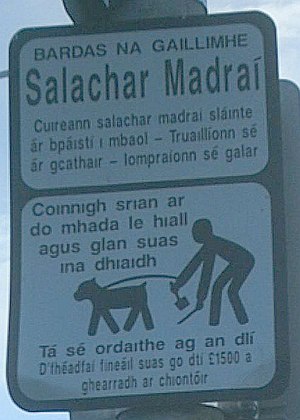Dara Ó Briain recently posted this video on Twitter to show just how different the Irish and British are in spite of a couple of centuries of speaking the same language.
In the early days of living together, I asked Ang to put the messages in the press. While simultaneously trying to figure out when I’d installed a device for receiving emails into an iron and dialling NHS Direct to get an ambulance sent out she didn’t realise that her first forays into Hiberno-English were occurring. Nowadays things are regularly grand in our house – to be sure things are rarely things any more, but yokes – and the expletive of choice is feck.
In return I’ve started saying “Ta ra!” and Tidy, which sound quite daft in a Dublin accent.
At least I didn’t mention the Immersion.

